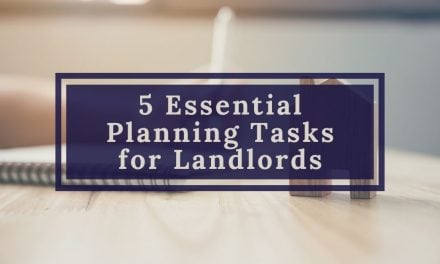
As a landlord, you may choose to sell your rental property for a variety of reasons.
Regardless of the reason, selling an investment property takes a little extra work due to the fact that someone else is typically living in your home. Selling a renter-occupied home requires coordination with your tenants to keep the house in show-able condition during the listing period and accommodate agents popping in to show the house to buyers. You may also experience challenges if your tenants do not want to move.
Reasons You May Sell Your Rental Property:
- Perhaps you are moving and don’t want to be a long distance landlord.
- Maybe you inherited the property, with no intention of ever being a landlord.
- You may live in a hot real estate market and you’re ready to liquidate your investment.
- Or you might be simply ready to get out of the landlording game altogether.
It may seem logical to wait until your tenants move out before putting a rental property up for sale. In this situation, a seller must decide if the convenience of selling an empty home is worth the potential income loss if the property sits vacant for too long. According to Realtor.com, the average days on market for homes sold in January 2019 was 87 days, nationally. Depending on where you live, the selling period could be longer or shorter. That could be rental income you might not be willing to part with.
In other cases, you will decide to move forward with a sale when a renter still occupies the home. Most state laws allow homeowners to sell their investments at any point during ownership, even if it is currently occupied by a tenant. The best way to make the sale of a renter-occupied home go smoothly is to communicate with your tenants to work together and coordinate schedules.
Tell Your Tenants
The most important step in dealing with your renters during a sale involves active communication. You should not be afraid of an in-person conversation with your tenants explaining your plans with selling the property. Personalizing the experience with your tenants will help them feel included in your decision and will encourage their participation during the process.
The success of dealing with a tenant during a sale is less about the message and more about how it is delivered. Give your tenants time to decide if they want to move, advanced notice before showings, and incentives to work with you during the process.
Empathize with Your Tenants
Your tenants might be shocked to learn they might have to move before they originally planned. You will benefit from acting respectful and accommodating to their reaction. Outline your timeline and explain the process so they know their options.
Tenant options can include:
- Start the moving process now
- Wait until the sale goes through and move then
- Hope that the buyer will keep the property as a rental and the tenants will not have to move.
Depending on the terms of your lease you will have to deal with the need to handle your renter’s tenancy in different ways.
Fix-Term Lease Tenants
Your tenants are entitled to live at your house throughout the length of the lease agreement they signed with you. If you decide to sell the home before their lease expires, the new buyer will have to agree to take over the lease.
The other option is to arrive upon a mutual agreement with your tenants that they will vacate the home once it has been sold, ending the lease early. Any lease can be legally terminated before its end date if both parties agree. Landlords may be successful in reaching agreement about an early lease termination if they offer incentives like covering the cost of moving expenses or offering a rent discount.
Month-to-Month Lease Tenants
If your tenant is on a month-to-month lease, they have fewer protections in staying at the property during or after the sale. If you want your tenants to move before the selling process starts, you simply need to provide your tenants with written notice about the end date of their tenancy. The same holds true if you want the tenant to move once the house has been sold; just send them a written notice that their lease is up in XX days.
Depending on your state or city, you are required to notify your tenants before they must move, typically 30 days in advance.
Showing a Renter-Occupied Home
If your tenants remain living in the home during the selling process, you will need to work with them to have the home available for showings and in pristine condition. Home values have been known to drop because of the condition of the home and the lack of access for agents and prospective buyers.
A great way to encourage active participation from your tenants to work with real estate agents and accommodate showings is to offer incentives. Rent discounts are excellent monetary rewards for helping you sell your home.
Other incentives include:
- A weekly or bi-weekly cleaning service -this will keep your house in a clean state for showings, encourage your tenants to keep the place tidy, and will help your tenants get their security deposit back!
- Restaurant gift certificates or Movie Tickets for showing appointments – you will get your tenants out of the house for a fun activity when an agent needs to stop by.
- Hotel room during an open house weekend – Staying away from your home a whole weekend is a lot to ask, the convenience of a hotel room will be greatly appreciated by your tenants and give them a place to relax during a stressful time.
Taking the steps to include your tenants during the selling process will be beneficial for a smooth rental property sale. If you choose to work with a real estate agent, make sure they understand the terms of tenancy for your current renter. Additionally, you should consider these ideal buyers for your rental property.
Ideal Buyers of Your Rental Property:
- Your Tenant. Consider approaching your tenant. In some cases, your tenant may be interested in purchasing the home from you. Long term tenants with stable income may be in a position to purchase your home and avoid moving from the property they have come to love.
- An Investor. If you market your property as a rent-ready investment property, you may attract like-minded landlords who are looking to expand their portfolio. If you already have a responsible, rent-paying tenant, your property can look exceptionally appealing to a smart investor who sees the benefit of collecting rental income right away by avoiding the process of finding their own renter.
Note to investors: If you are purchasing a renter-occupied home and plan to keep the same tenants, make sure to require that are entitled to conduct your own tenant screening and have the current tenants sign a new lease with you.







It’s interesting to note that the work and updates a landlord does on a rental are the same ones that will attract buyers, such as fresh, neutral paint, good floors, new appliances. The article https://www.homelight.com/blog/selling-homes-rental-property/ explains the range of basic and DIY work that both landlords and sellers should find beneficial, and why smart-landlord-thinking can help you sell a house.
This is an informative blog which has a detailed description of the the Sell Your Rental Property.
Thanks for sharing with us.
Glad you liked it! Thank you for your feedback
actually looking for a person who might assist in analyzing potential buyer(s) since I plan on holding the mortgage of my rental property….tax considerations are significant reason. What type of person or company would fit this situation?…thanks stans ..advise appreciated…thanks
Of course, there’s the DIY method that would be similar but more thorough than tenant screening. But if you wish to outsource, you might want to do an online search:
– seller finance loan servicing company
– owner finance loan service company
– residential mortgage loan originator (RMLO)
– mortgage broker
etc.
Others have been in your shoes and there are many forums online with discussions on best practices. Here’s one from BiggerPockets that might be of interest: Qualifying a Buyer for Owner Financing
Not sure if you are going the rent or lease to own route or a traditional purchase agreement and because I can’t offer legal advice, I would recommend you check with your attorney and review the SAFE Act (Secure and Fair Enforcement for Mortgage Lending Act) and other regulations prior to vetting potential buyers. Hope this helps — all the best!
Note: For those reading this conversation interested in more information, a topic overview can be found here: Rent to Own vs For Sale by Owner
I’m going to be selling a rental property next year- a quad home- (4 townhomes in 1 bldg.). I want to find an agent that is experienced in rental property sales. What do you think would be the best way to find an agent?
It might go without saying but the internet is our friend in this regard. Try an internet search such as “real estate agent near me rental property experience” or “commercial real estate agent near me”.
Secondly, you might want to ask your real estate attorney or accountant for recommendations.
Next, ask others in the rental industry in your area which agents they use and prefer. I’ve seen questions just like this posted in online social groups (Facebook local chats, city pages on Facebook and Twitter, etc).
If you aren’t networked in with other landlords in your area, now might be the time to check out landlord associations.
From the above, you’ll likely have a short list to work with. Take that list and research their reputation online. From Google Reviews to other review sites, you’ll get a picture of the agents reputation. From there, be sure to check your state real estate commission (real estate board) to make sure they are in good standing.
Hope this is helpful and wishing you all the best success!
ok i bought a house from the seller that had it rented to a couple that has a lesse till feb 18 2023 i signed papers on Aug 29 2022 to take owebship of the house snd in the lease thev renters and the seller have say thenlease can be terimated if the seller sells the house but does not give a certian amount of days they have to vacate now it going on almost 2 months and they are still.im my house i bought for.ptimary residence and thev only have psid me 400 dollars of rent which rent was 800 a month and so.im 400 paid bythem sonthry still oen me 1200 dollars and evety time i call or txt then they hot some excuse about they cant find a place or they dont have the money they are basically living in my house fir free and im paying rent on ky apartmrnt which is 550 a month snd mynhouse paymebt of 775 om a fixed income of 2000 s month which ihave tompay on my aoartmrnte utilities and gas to work and grocries after paying for my tent snd ny housr paymnt that tovether is 1350 plus200 utilities plus gas and food 100a week gaz a week is 600 total tgats right at 2200 a month so you see im broke before i even get to the next month is there any advice on gettingbthem outn9f my house wihich the seller saifud they are mynheadache now but inbthr sellers agrement he us ti pay md 175 00 for every day till i taje possesion of the house and he s blocked my number and will not get back withr does my realator hace a responsibility to help me or domintake theblaw in.my.oen hands pleaee help mr in indisnaa and broke
Hi Ronald — By purchasing a home with renters, the lease terms are transferred to you. Assuming the lease agreement doesn’t violate any state or local regulations, if there is a clause stating new owners can (have the right) to terminate the agreement so that the home can be owner-occupied, at minimum you would need to give the tenants proper notification of lease termination and a move-out notice. Those notifications, the amount of days for those notices, and other regulations are location specific. I would recommend you reach out to your local housing authority, your State’s Real Estate Board, and/or your real estate attorney for those details and to get the proper forms to give to the tenants. If you give proper notice and they refuse to leave, you would then need to pursue an eviction. Hope this information is helpful.
sorry for the typos loss of slerp snd frustation on the purchase of the house has me at my wits ends seems like im out here on my.own any lawyers want to help me pro bono because liveing on a fixef imcome snd sponges lowlufes taking advantajed of a 62 yr old man and they arr 40 and dont work please pleaee help i cant afford a lawyer i need help any donations to a lawyer tonhelp paid directky to the lawyers woulf be greatfuly helpful and if God blessed me i will pay the donation back in time thank you God please help me
I am sorry you are facing this situation, Ronald. I understand that legal representation is expensive. Please do reach out to your local housing authority or real estate board as they would have the regulations you need to follow and may have those forms/notices available free. You might also check with your local legal aid center or senior services to take advantage of any free and low cost legal consultations. I can’t offer legal advice but if you let me know your State and County I might be able to find you some helpful websites to review.